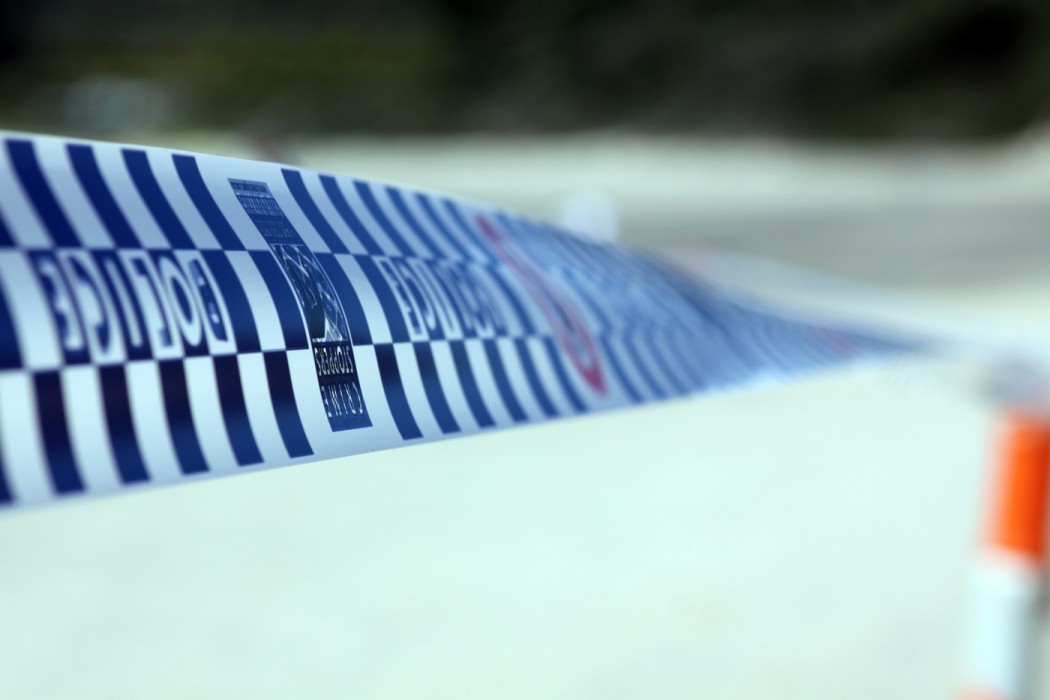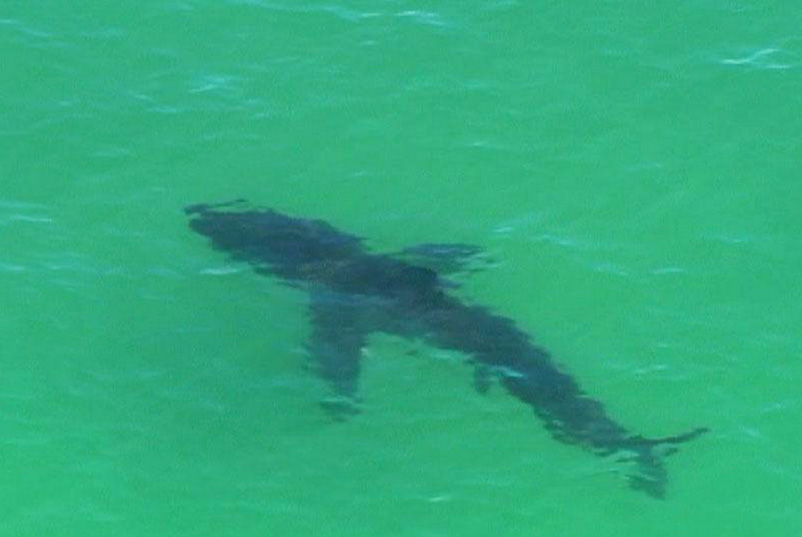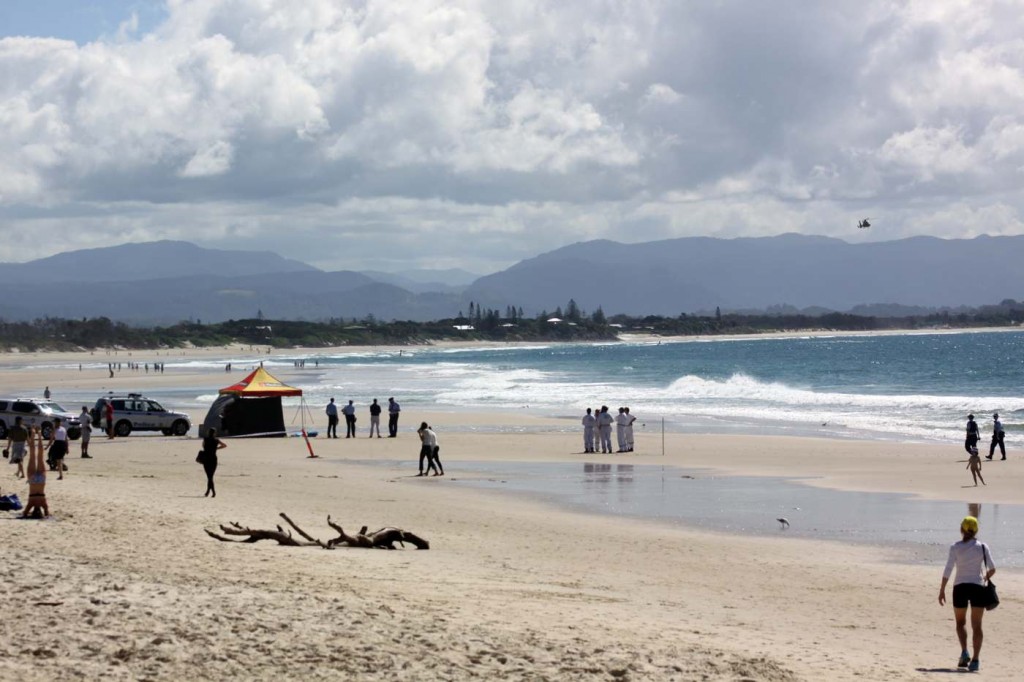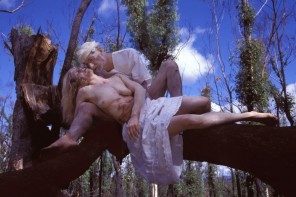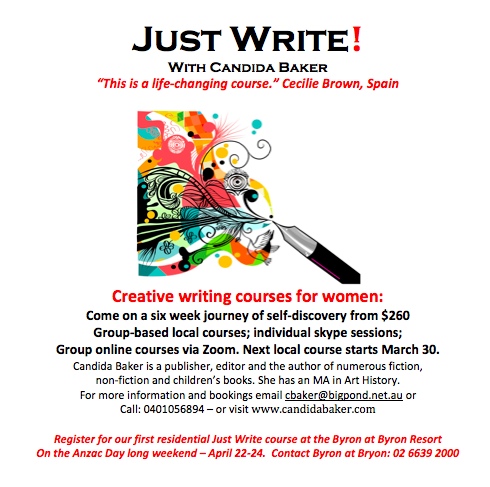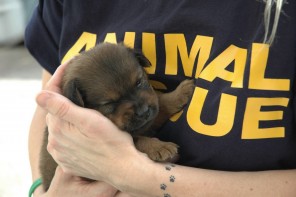Although the local Byron community was shocked to its core by the fatal shark attack at Clarke’s Beach recently, it has not been the only blow to the collective psyche, writes Candida Baker.
I was getting ready for bed the other night when my daughter called out to me from her bedroom.
“Mum,” she said, “I can’t help thinking about the man who was taken by a shark. It’s so sad.”
The strange thing was, I had been thinking about it at exactly that moment as well, trying to imagine how on earth his wife was coping, the odd personal markers for that day – two friends of mine in the surf down at Byron at the time that it happened, another friend playing with her daughter down at the water’s edge at the next beach, wondering what the sirens were about. I went into my daughter’s room, and we cuddled together. “I need to say,” she said echoing my thoughts again. “How is his family feeling? How is his wife? She was there.”
We’ve had more than our fair share of fatalities here in the past few months. As well as Paul Wilcox’s death from loss of blood after the three-metre Great White Pointer attacked him as he was swimming from the Pass to Main Beach in Byron Bay, four local young people, Jessica Camidge, 22, Richard Wells, 19, William Manton 20, and Samantha Enright, 17, lost their lives when their car slammed into a tree on the Pacific Highway at Newrybar just after midnight while they were overtaking a truck on their way from Byron Bay to Ballina and two months ago a 20-year-old male surfer, Stuart Butler disappeared when he and two other friends were caught in a rip.
Somehow living in a small community, the shockwaves from this sort of news is much more extreme. Even though when you live in a city, as I did for many years, you become almost oblivious to the sound of sirens, here, they are still outside the norm – a portent of something dreadful. Unfortunately in the Northern Rivers that something dreadful is too often a car accident, and we have the sad distinction of recording the highest regional road toll in the past 12 months. This has been the case for too long. The 2006 crash at Broken Head that killed four young men affected the community so much that the then-new artistic director of NORPA (Northern Rivers Performing Arts) that he commissioned local playwright Janis Balodis to write a play, Engine, about the ripple effect of grief and loss through a family and community. And also the effect on those that have to attend the accidents – a friend put it into perspective when she pointed out that one young policewoman, Inspector Bobbie Cullen, had been at all three tragedies. That’s a heavy load for the psyche to digest, process and move on from, whilst still having to work.
Death, of course, happens all around us, all around the world, all the time, but somehow we are (mostly) able to detach ourselves from the pain of people passing before their time, but when it is within the community we belong to, or resonates personally with us in some way, then it is very different. I can still remember vividly the weekend my daughter and I were in Sydney to catch up with relatives, and while we were at the local shopping centre my phone rang. It was a friend from Byron telling me that a teenage girl whose family we knew had crashed her car and died, and her younger brother was seriously injured. It had happened in heavy rain, after months of dry weather, and she had lost control of the car on a corner. And although I’d never met the girl, I was close enough to the family (because we’d inherited an old family pony of theirs) for me to literally feel the colour drain away, and shock waves begin to wash through my body.
But even though there is only a one in 292,525 chance of being killed by a shark, and there have been only 159 fatal attacks in Australia in the past 100 years, and yet close to 1,200 people in Australia died in car accidents in 2013 alone – the fact is that somehow the very idea of a shark attack triggers some deep, instinctual Jaws-style fear response to the monster from the deep.* Fortunately, here in New South Wales, there is no talk of shark culling as has been occurring in Western Australia. To me culling sharks because they kill on average one person a year makes about as much sense as culling teenagers since they are the most-at-risk group – and the group that put others most at risk!
Here, in Byron Bay, where shark attacks are uncommon but not unknown – my son witnessed a woman beating off a shark that was trying to attack her kayak, a surfer friend also beat one off by repeatedly hitting him over the nose, 16-year-old bodysurfer Peter Edmonds was killed in a shark attack at Ballina in 2008 – this fatal attack still seemed somehow different, partly perhaps, because it was so close to town – on Clarke’s Beach on a quiet day. It seemed somehow as if the beach had lost a little of its innocence.
And as my daughter and I cuddled into the night, she whispered in my ear, “Mum, I don’t think I’ll do snorkelling as a sport next term.”
“No,” I replied. “Good idea.” Suddenly her chosen sport for several terms, which had included snorkelling sessions at Main Beach, and out at Julian Rocks, and which, from afar I’d marvelled at – snorkelling? A school sport! How wonderful! – seemed retrospectively insane. My child had been in that water?
I held her close and thought that perhaps the only lesson to learn from this sudden attack on our collective Northern Rivers psyche from road and sea, was to love our loved ones even better, even harder. Because you just never know.
Photograph of police bunting: Sonia Friedrich. Statistics from ABS and The Australian.

